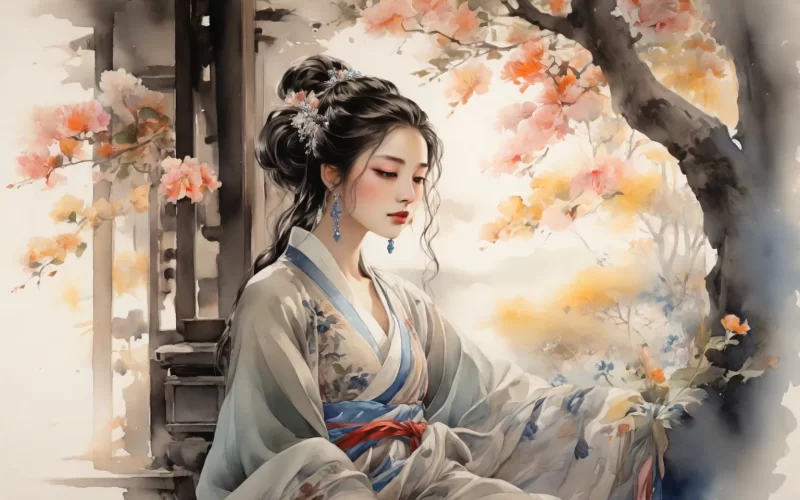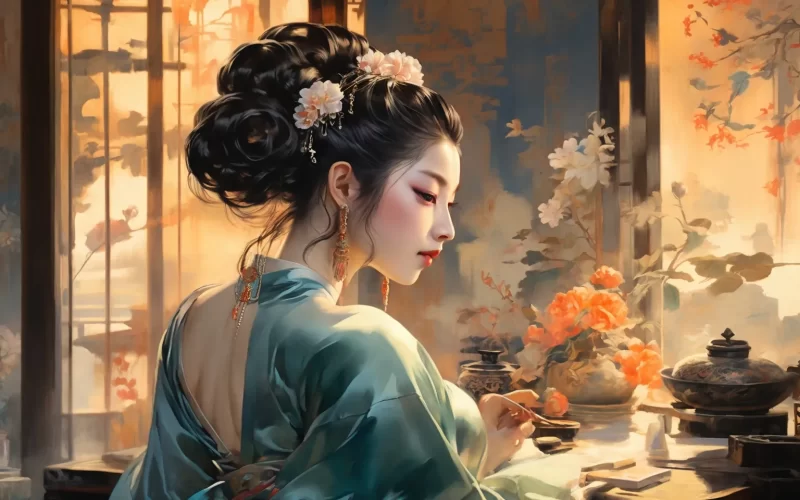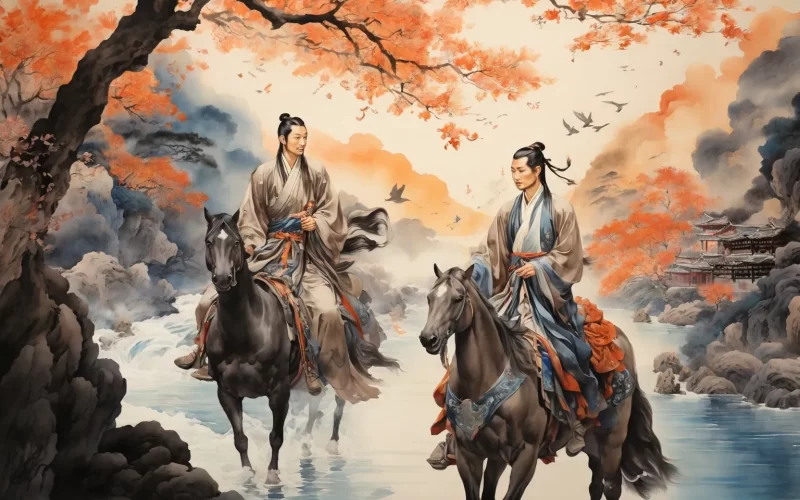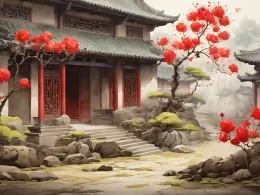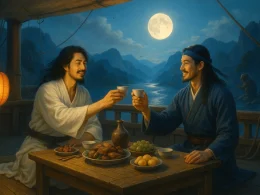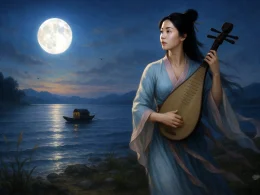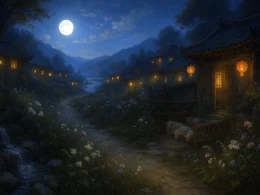Finch-notes and swallow-notes tell the new year... But so far are the Town of the Horse and the Dragon Mound From this our house, from these walls and Han Gardens, That the moon takes my heart to the Tartar sky. I have woven in the frame endless words of my grieving. Yet this petal-bough is smiling now on my lonely sleep. ...Oh, ask General Tou when his Bags will come home And his triumph be carved on the rock of Yen-jan Mountain!
Original Poem
「春思」
皇甫冉
莺啼燕语报新年,马邑龙堆路几千。
家住层城邻汉苑,心随明月到胡天。
机中锦字论长恨,楼上花枝笑独眠。
为问元戎窦车骑,何时返旆勒燕然。
Interpretation
Composed during the Tang Dynasty's golden age of frequent border wars, this poem adopts the voice of a military wife yearning for her distant husband. Huangfu Ran's exquisite craftsmanship blends seasonal beauty with historical allusions to create poignant emotional resonance.
First Couplet: "莺啼燕语报新年,马邑龙堆路几千。"
Yīng tí yàn yǔ bào xīn nián, mǎ yì lóng duī lù jǐ qiān.
Orioles and swallows herald spring's new day,
Yet you're at frontier posts three thousand li away.
The cheerful birdsong accentuates the wife's loneliness. "Ma Yi" and "Long Dui"—remote garrison towns—highlight the cruel distance between spring's joy and her isolation.
Second Couplet: "家住层城邻汉苑,心随明月到胡天。"
Jiā zhù céng chéng lín hàn yuàn, xīn suí míng yuè dào hú tiān.
Our home neighbors Han palaces in capital's core,
My heart rides the moon to your barbarian war.
The privileged "layered city" residence contrasts with her spiritual migration to the frontier. The moon becomes a psychological bridge across geopolitical divides.
Third Couplet: "机中锦字论长恨,楼上花枝笑独眠。"
Jī zhōng jǐn zì lùn cháng hèn, lóu shàng huā zhī xiào dú mián.
On brocade I weave our endless sorrow,
Chamber flowers mock my solitary morrow.
The allusion to Su Hui's "palindrome poems" (a 4th-century wife's woven love letters) deepens the emotional weight. Personified blossoms laughing at her lonely sleep intensify the pathos.
Fourth Couplet: "为问元戎窦车骑,何时返旆勒燕然。"
Wèi wèn yuán róng dòu chē qí, hé shí fǎn pèi lēi yān rán.
When will our general, like Dou's victory cheer,
Lead your triumphal return from the frontier?
The reference to General Dou Xian's 89 AD victory monument (erected after defeating the Xiongnu) expresses desperate hope for homecoming, subtly critiquing endless warfare.
Holistic Appreciation
This lyrical masterpiece interweaves seasonal renewal with human stasis. Each couplet deepens the psychological portrait: from seasonal contrast to spatial longing, from textile lament to political plea. Avoiding direct complaint, the poem's power emerges through exquisite restraint—spring's vitality underscoring human fragility, historical allusions amplifying personal grief.
Artistic Merits
- Nature as emotional foil: Cheerful birds and blossoms heighten the wife's solitude
- Historical layering: Su Hui's woven poems and Dou Xian's victory monument add cultural depth
- Silent protest: The personal becomes political as domestic longing implies war-weariness
Insights
Beyond its immediate context, the poem speaks to war's invisible casualties—those who wait. The wife's privileged surroundings cannot compensate for emotional absence, reminding us that warfare disrupts lives beyond battlefields. Its enduring relevance lies in honoring private resilience amid public conflict, and in demonstrating how great poetry transforms personal ache into universal testimony about peace's preciousness.
About the poet
Huangfu Ran (716 - 769 AD) was a native of Jingchuan North in Gansu. In 756 A.D., he received his bachelor's degree and was authorized as a lieutenant of Wuxi. One of the "ten geniuses of the Dali", like to travel with the foreigners, the poems are mostly written in the eunuchs wandering feelings and the leisure of the landscape.






